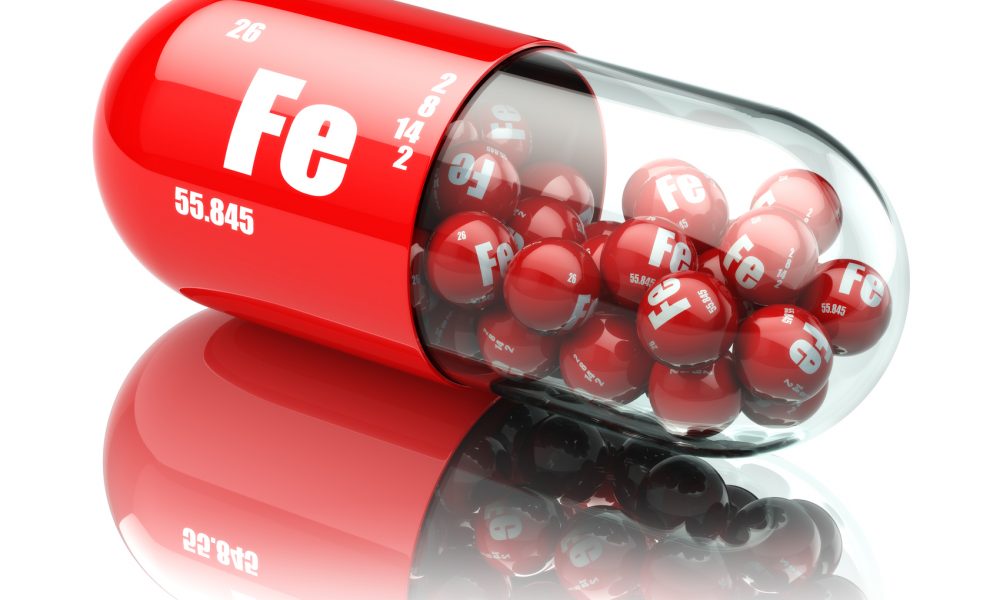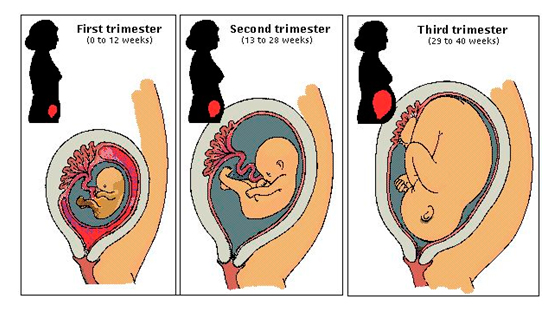
Iron Supplements: Challenges and Solutions

There are many reasons why iron is often considered a challenging supplement; chiefly, gastric side effects and undesirable taste. In this issue of our consumer newsletter, we will explore these challenges and detail the solutions — Ferrochel® and Taste-Free™ Iron (Fe).
Ferrochel® (ferrous bisglycinate chelate) is a highly bioavailable form of iron that is well tolerated, non-reactive (electrically neutral), safe (GRAS), Kosher, and Halal. Studies have shown Ferrochel® to be superior to ferrous sulfate in preventing anemia during pregnancy and much better tolerated (non-constipating, lower overall gastric side effects).
Taste-Free™ Iron (Fe) (ferric glycinate) has been demonstrated to be safe and effective. It is covered by 2 patents and is GRAS, as well as Kosher and Halal. Its low reactivity and taste-free features make it ideal for fortifying certain foods, as well as being used in supplement forms, such as chewables, liquid, and drop suspensions.
Prenatal vitamin/mineral supplements are routinely prescribed or selected to be taken over the course of a pregnancy. During pregnancy, a woman’s need for additional micronutrients is increased due to the increased metabolic needs of the woman, as well as the need to supply nutrition to the fetus for healthy development. In view of this, the National Academy of Science has made the following recommendation concerning the contents of prenatal supplements.
“ The U.S. National Academy of Science recommends a vitamin and mineral supplement that contains the following: 30 mg iron 15 mg zinc 2 mg copper 250 mg calcium (600 mg for women younger than age 25 and for those whose daily intake of calcium is less than 600 mg) 2 mg vitamin B6 3 mg folate 5 micrograms vitamin D (10 micrograms for women who do not drink vitamin D-fortified milk, have minimal exposure to sunlight, or are vegan) 2 micrograms of vitamin B12 for women who are vegan .”

Iron, calcium, and folic acid are the main micronutrients that need intake adjustments during pregnancy. The normal RDA for iron in adult women is 18mg per day, and in pregnancy, the RDA is increased to 27mg per day. In the first part of this newsletter, we will be discussing the importance of iron intake during pregnancy, as well as its need for the development of the newborn. Iron, of course, is essential for the making of hemoglobin, which is the portion of the red blood cell that delivers oxygen throughout the body. Iron has a role in multiple enzyme systems, and is needed to maintain a strong immune system. These roles for iron are continued during pregnancy. During pregnancy, the need for iron is greatly increased. Here are some reasons why. During the course of pregnancy, the amount of blood in a woman increases until it is about 50% greater than prior to pregnancy. This increase in blood will mean that the woman will require more iron to maintain adequate hemoglobin concentrations. Extra iron is needed for the proper development of the fetus and the placenta. This is especially true in the second and third trimesters. Iron deficiency anemia has some inherent dangers. It is associated with preterm delivery, low birth weight, and infant mortality. Iron deficiency during pregnancy will impair the brain and neurologic development, as well as the overall growth of the fetus.
Problems Associated with Iron Supplementation
According to WebMD’s online listing, most oral iron forms are associated with side effects. These side effects include stomach upset and pain, constipation or diarrhea, nausea, and vomiting. Taking the iron supplement with food can reduce some of these side effects; however, this has been shown to reduce the absorption of most iron forms. Iron should be taken on an empty stomach for maximum absorption. These side effects are real problems during pregnancy. Pregnancy is often, in itself, associated with morning sickness – nausea and vomiting – as well as constipation. Many iron forms, including the most commonly used form, ferrous sulfate, are known to cause these gastric side effects. These gastric side effects due to iron in prenatal supplements are a leading contributor to a lack of compliance. Non-compliance can lead to iron deficiency during pregnancy and result in all the complications that can arise. If an iron form is included in a prenatal supplement that is free from these side effects and is highly absorbed, the chance for compliance is greatly improved.
Ferrochel® is a Solution
Ferrochel® (ferrous bisglycinate chelate) has been the subject of 80+ published articles, and about 70 clinical studies. Ferrochel® has been clinically shown to have superior bioavailability to commonly used iron salt forms, such as ferrous sulfate. It has also been shown to be a better-tolerated form of iron than salt forms.
Milman, N., J. Perinat. Med., 2014 Mar; 42(2): 197-206
This study was on healthy adult pregnant Danish women. One group received 25mg of elemental iron as ferrous bisglycinate chelate, while the other received 50mg of elemental iron as ferrous sulfate, from weeks 15 to 19, until delivery. At this lower dose from ferrous bisglycinate chelate, Iron deficiency was prevented in at least 85% of the women, and iron deficiency anemia was prevented in at least 95% of the women. At half the dose, ferrous bisglycinate performed at least as well as the larger dose of ferrous sulfate, and there was a significantly lower incidence of GI Side effects.
Szarfarc, S.C., ALAN, vol. 51, No.1
This study was to evaluate the relative effectiveness of iron bisglycinate chelate versus ferrous sulfate in fighting iron deficiency in pregnant women. The iron bisgycinate chelate group received 15mg of elemental iron per day, while the ferrous sulfate group received 40mg of elemental iron per day. The measurables were hemoglobin, transferrin saturation, and serum ferritin – measured at three-time points during pregnancy. After 30 weeks of supplementation, it was obvious that the group taking Ferrochel® had a much better iron status than the ferrous sulfate group, in spite of the much lower daily dosage. The Ferrochel® group had a much better compliance record, as well. The main reason for non-compliance in the ferrous sulfate group was bad taste. Researchers concluded that Ferrochel® is much more effective in the control of iron deficiency during pregnancy.
Makola, D. J. Nutr. Vol. 133 No.5, 133 (5), 1339-1346; May, 2003
This study included 259 pregnant women (gestational ages 8-34 weeks) in a double-blind controlled 8-week supplementation trial. The study was to test the effect of an 11-micronutrient-fortified beverage (containing Ferrochel® as the iron source) on the hemoglobin, iron, and vitamin status of pregnant women in Tanzania. After 8 weeks on this supplement, there were clinically significant increases in hemoglobin, ferritin, and vitamin status. Researchers concluded that the use of this micronutrient-fortified beverage may be a useful and convenient preventive measure to improve the nutritional status of women before and during pregnancy to help avoid potential maternal and fetal consequences of micronutrient deficiency.
As we learned in the last installment of this newsletter, Ferrochel® has been shown to be well tolerated in several published clinical studies, and in head-to-head studies versus ferrous sulfate, the subjects in the studies have preferred Ferrochel®, as being easier on the GI tract – less cramping, nausea, and far less constipation. Ferrochel® is an excellent solution to the difficulties presented by iron taken during pregnancy. Formulating prenatal supplements with Ferrochel® as the iron source will result in high iron bioavailability, helping to prevent iron deficiency, as well as insuring that the fetus is supplied adequate iron for its healthy growth and neurological development. Its lack of gastric side effects will lead to better compliance during the course of the pregnancy. The table below summarizes the Ferrochel® advantages.
Iron-Source Characteristics
| Benefits | Ferrochel® | Iron Salts |
| High bioavailability | v | |
| Electrically neutral | v | |
| Well-tolerated, easy on the gut | v | |
| Viable for dairy products, even with pasteurization | v | |
| Drawbacks | ||
| Pro-oxidant effect* | v | |
| Cause off flavor in foods | v | |
| Cause color changes in foods | v | |
| Interferes with other nutrient absorption | v | |
| Requires Vitamin C for absorption | v |
Infants and Young Children – Iron Intake is Critical
According to a published report (Baker, RD, Greer, FR, Pediatrics, Nov. 2010, Vol.1126/issue5), iron deficiency and iron deficiency anemia in infants and toddlers is a major worldwide concern. In developing nations, iron is the most common nutrient deficiency in young children. According to the World Health Organization, iron deficiency affects over 50% of preschool-age children. In the United States, despite a significant decline in iron deficiency anemia, it remains a common problem. In the United States, iron deficiency occurs in 6.6-15.2% of toddlers. Iron plays important roles in muscle function, energy creation, brain, and neurological development. As a result, iron deficiency can lead to children having learning and behavioral problems. Iron deficiency in infants has been shown to slow nerve conduction (Beard, J, J. Nutr. Vol. 133, No. 5, 1468S-1472S, May, 2003), which strongly suggests hypomyelination and/or alterations in neurotransmitters as a result of iron deficiency in the first year of life.
Because of the incidence and long-term impact of iron deficiency in infants and toddlers, efforts to detect iron deficiency in this age group must be emphasized. In addition, there need to be efforts made to insure that they have adequate iron intake, in utero and early in life. In view of this, the fortification of staple foods is a common practice in developing nations. In addition, iron in supplemental forms is commonly manufactured in dosage forms intended for infants and toddlers in developed nations, as well as in third-world countries. The dosage forms intended for infants and toddlers are typically pediatric drops, liquids, or chewable tablets. Most iron forms, like ferrous sulfate, cause these dosage forms to have a taste that is not well accepted by the young. Because of this, parents often have a problem getting infants and toddlers to take their iron supplements.
Iron Taste Free – the Solution
Albion has developed a form of iron that is Taste Free®. Taste-Free™ Iron (Fe) is ferric glycinate (19%Fe). Taste-Free™ Iron (Fe) has been shown to be a bioavailable form of iron in clinical studies. In addition, it has not been seen to have a negative effect on taste or mouthfeel. In a clinical study, sugar was fortified with Iron Taste Free (Arch. LatinoAmericanos De Nutrition, vol.51, No.1, 2001, pp. 54-59), and the fortified sugar was added to orange juice (20 grams of sugar per glass of juice). There were 2 groups in the study. Each received Taste-Free™ Iron (Fe) fortified orange juice, but at 2 different levels. Both groups showed significant improvement in their iron status at the study’s end. The orange juice containing the Iron Taste Free was very well accepted. The Taste-Free™ Iron (Fe) fortification of the orange juice caused no changes in organoleptic properties The researchers stated that there were no detectable differences in the fortified sugar versus non-fortified sugar. In Guatemala, sugar has been fortified with Iron Taste-Free as well, which has led to improved iron status in the state of Guatemala using Taste-Free™ Iron (Fe) fortified sugar. Iron salt-fortified sugar leads to excessive organoleptic changes that make them impractical in sugar fortification.
Taste-Free™ Iron (Fe) Has Been Used to Fortify the Following:
- Yogurt
- Margarine
- Petit Suisse
- Sugar
Taste-Free™ Iron (Fe) is an ideal form of iron for use in oral suspensions, chewable tablets, and pediatric drops due its proven effectiveness and taste-free feature.
Albion – the Iron Leader
The properties of Albion’s two iron ingredients make them an excellent solution to problems caused by iron salt forms, such as ferrous sulfate and ferrous gluconate.
Ferrochel® (ferrous bisglycinate chelate) is a highly bioavailable form of iron that is well tolerated, non-reactive (electrically neutral), safe (GRAS), Kosher, and Halal. Studies have shown Ferrochel® to be superior to ferrous sulfate in preventing anemia during pregnancy and much better tolerated (non-constipating, lower overall gastric side effects). Ferrochel® is the best choice for prenatal supplementation.
Iron Taste Free (ferric glycinate) has been demonstrated to be safe and effective. It is covered by 2 patents and is GRAS, as well as Kosher and Halal. Its low reactivity and taste-free features make it ideal for fortifying certain foods, as well as being used in supplement forms, such as chewables, liquid, and drop suspensions. When it comes to iron ingredients, look to Albion.

